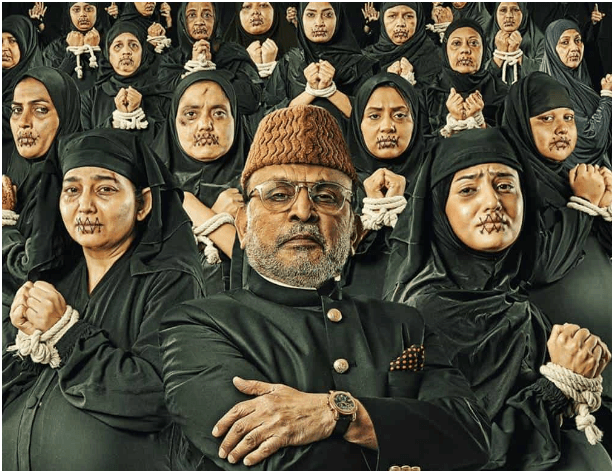Karnataka Government Bans “Hamare Baarah” to Prevent Communal Tension

Karnataka Government Bans Release of “Hamare Baarah” to Prevent Communal Tension
In a significant move aimed at maintaining public order, the Karnataka government has decided to ban the release of the film “Hamare Baarah”. The decision comes amid concerns that the film could incite communal tension and disrupt social harmony within the state. The ban reflects the government’s proactive stance in preventing potential conflicts and ensuring peace among diverse communities.
“Hamare Baarah”, directed by [Director’s Name], is a drama that delves into sensitive social issues. The film’s narrative revolves around [brief plot description], addressing themes of [specific themes such as communal harmony, social justice, etc.]. Given its subject matter, the film was anticipated to spark debate and discussion upon its release.
The film’s trailers and promotional material generated mixed reactions. While some appreciated the film’s bold approach to pertinent issues, others expressed concerns over its portrayal of certain communities and the potential for it to exacerbate communal sentiments.
The primary reason cited by the Karnataka government for banning the film is the potential risk it poses to communal harmony. Karnataka, like many parts of India, has a diverse population with multiple religious and cultural communities coexisting. In such a milieu, content perceived as inflammatory can quickly escalate tensions.
Reports from intelligence agencies and feedback from various community leaders indicated a high likelihood of unrest if the film were to be released. There were apprehensions that certain scenes and dialogues in “Hamare Baarah” could be misinterpreted or deliberately used to provoke communal discord.
The Karnataka government has previously taken similar preventive measures to maintain public order. The decision to ban “Hamare Baarah” aligns with these precedents, emphasizing the administration’s commitment to preempting and mitigating potential threats to social stability.
The ban has elicited a range of responses from political leaders and parties. [Political Party/Leader] supported the government’s decision, citing the importance of maintaining peace and preventing violence. Conversely, [Opposition Party/Leader] criticized the ban, arguing that it constitutes censorship and infringes on freedom of expression.
Public opinion on the ban is divided. Some citizens agree with the government’s decision, prioritizing communal harmony over the release of potentially provocative content. Others, however, view the ban as an overreach, fearing it sets a concerning precedent for artistic freedom and expression.
The film’s director, [Director’s Name], and other industry stakeholders have expressed their disappointment with the ban. They argue that “Hamare Baarah” was created to provoke thought and dialogue around critical social issues, not to incite conflict. The filmmakers are considering legal recourse to challenge the ban, hoping to ensure the film’s message reaches its intended audience.
The ban on “Hamare Baarah” raises important questions about the balance between freedom of expression and the need to maintain public order. While freedom of expression is a fundamental right, it is not absolute and can be restricted in the interest of public safety and order. The challenge lies in ensuring that such restrictions are justified and do not stifle legitimate artistic and intellectual discourse.
Censorship remains a contentious issue in democratic societies. Proponents argue that it is necessary to prevent the spread of harmful or provocative content, especially in diverse and sensitive contexts. Critics, however, contend that censorship often suppresses important voices and perspectives, limiting the scope of public debate and understanding.
The ban on “Hamare Baarah” could have a chilling effect on filmmakers who wish to tackle controversial or sensitive subjects. Fear of similar repercussions might discourage artists from exploring important social themes, thereby limiting the diversity of narratives in Indian cinema.
This decision sets a precedent for government intervention in the release of films and other media content. Future administrations may be more inclined to take preventive measures against content perceived as risky, potentially leading to increased censorship.
The government’s move also highlights the delicate balance required in managing community relations in a diverse society. Proactive measures to prevent conflict are crucial, but they must be balanced with respect for individual rights and freedoms.
The Karnataka government’s decision to ban “Hamare Baarah” reflects its priority to maintain communal harmony and prevent potential unrest. While this move has sparked a debate on censorship and freedom of expression, it underscores the complexities involved in governing a diverse society. As the situation unfolds, it will be important to watch how the legal challenges and public discourse evolve, shaping the future landscape of artistic expression and communal relations in Karnataka and beyond.
For more Bollywood updates. click here.
